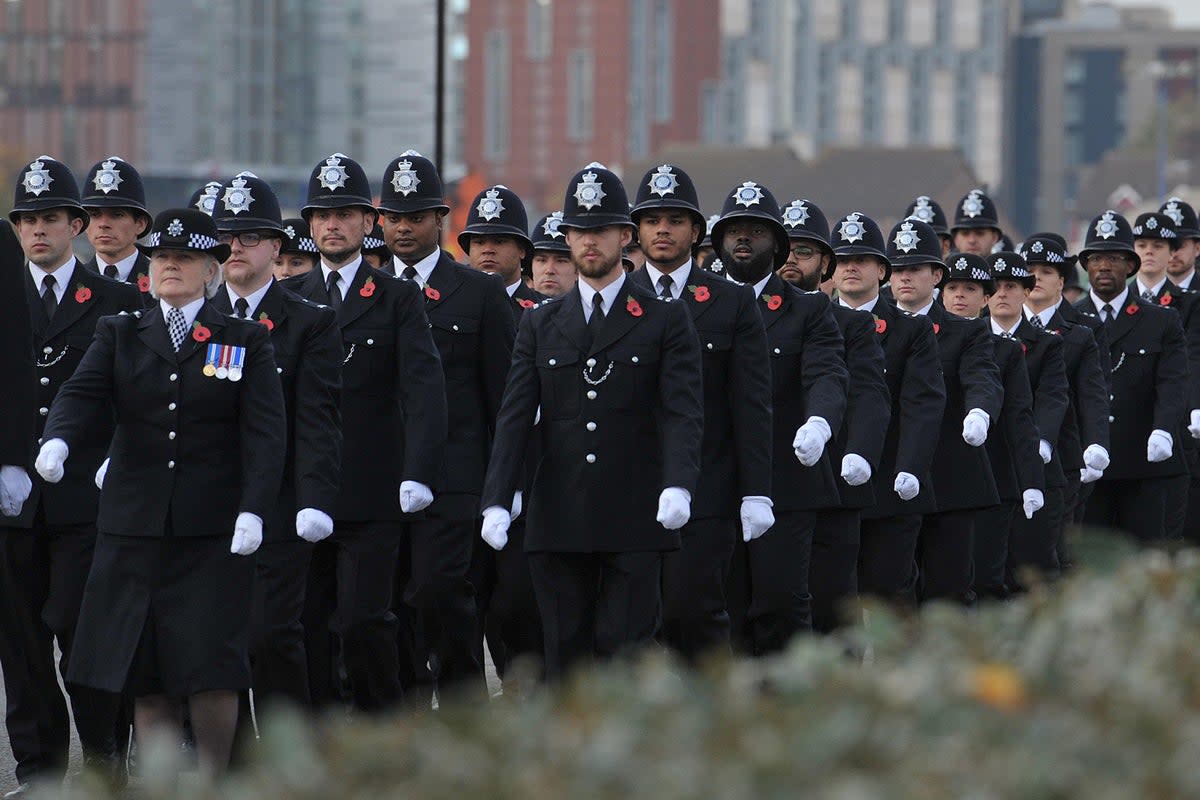‘Sorry to those let down’: Black and Asian police suffer racism within force, Met chief admits

Black, Asian and mixed-race officers in the UK’s biggest police force are suffering because of systemic racism in its ranks, its commissioner has admitted.
An interim report on the Metropolitan Police’s misconduct procedures revealed that its internal disciplinary system is racist and misogynist, and allegations of sexual misconduct or discrimination are less likely to result in a case to answer than other claims.
White officers and staff continue to fare better than their ethnic minority counterparts throughout the organisation, the review confirmed.
“We have heard repeatedly from colleagues that they feel and believe and actually have given us case examples of where people are getting away both with misconduct but also criminal behaviour,” author Baroness Louise Casey said.
In every year of data examined (2013-2022), ethnic minority officers and staff were substantially more likely than their white colleagues to face a misconduct allegation. The probe found that when an allegation related to racism is raised, it is less likely to receive a ‘case to answer’ decision than other issues.
Meanwhile, testimonies from officers show that raising racism-related concerns often led to the complainant being labelled a troublemaker, which then brought about unfair disciplinary action.
Met Police commissioner Mark Rowley apologised for the force’s failings in a letter to Ms Casey published on Monday.
“The evidence is clear: the disproportionate way in which you have showed us Black and Asian officers and staff have been treated shows patterns of unacceptable discrimination that clearly amount to systemic bias,” he wrote.
“The fact that allegations of racism or sexual misconduct and misogyny have less chance of being upheld is also completely unacceptable. Furthermore, it is clear that the Met’s systems and processes don’t support the right outcomes.
“You uncover painful experiences from those within our ranks who have suffered discrimination and hate from colleagues, only to have their hurt compounded by a weak response from the organisation. This cannot continue.”
The Met Police commissioner added: “I am sorry to those we have let down: both the public and our honest and dedicated officers. The public deserves a better Met, and so do our good people who strive every day to make a positive difference to Londoners.”
Over 18,589 cases of misconduct were examined by investigators from April 2013 – March 2022.
In the most recent financial year, Black officers and staff were 81 per cent more likely to receive a misconduct allegation than their white colleagues, Asian workers were 55 per cent more likely and mixed-ethnicity employees were 41 per cent more likely.
While the report found the force’s misconduct system is "not robust" with white officers who breach professional standards, there was a “lower threshold" for their Black, Asian and mixed ethnicity counterparts, the review found.
Ethnic minority staff on probation are also disproportionately resigning and dismissed, with Black and Asian workers more than twice as likely to be sacked than their white colleagues.
Compared to the 2018-2022 cohort of white police constables and detective constables with two or fewer years of service, Black officers are 126 per cent more likely to be dismissed, Asian officers are 123 per cent more likely and mixed-race officers are 50 per cent more likely.
A full report on the culture within the Met will be published in the new year.
As the interim report was published, the Home Office announced a review of the systems to sack police officers. It will also look at whether forces are using powers to dismiss probationary officers, and whether regulations governing the disciplinary system should be changed.
Abimbola Johnson, barrister and chair of the Independent Scrutiny and Oversight Board, described the Casey Review as “damning” and called on the Met to “solve internal culture”.
The ISOB chair also said the report “highlights how unsafe a working environment the Metropolitan Police is for Black, Asian and other ethnically minoritised officers and for women”.
“We are deeply concerned for those who sit at the intersection of those characteristics. The Metropolitan Police must use this report as a prompt to reflect on how it can expect members of the public, particularly people with those backgrounds, to trust them to use their powers appropriately and fairly when they under-protect and over-police racially minoritised and female officers.”


